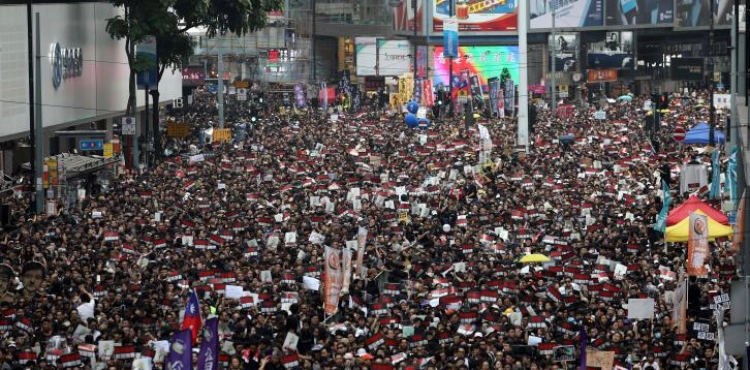Large crowds attended in Hong Kong on Sunday, amid growing public anger following unprecended clashes between protesters and police over a controversial bill allowing extradition to China despite a government decision to suspend it.
Organizers hope for a massive participation and have vowed to keep pressure on Hong Kong´s head of government, Carrie Lam, although she suspended the bill on Saturday in response to street pressure, saying it underestimated the mood.
An hour before the march began, the train stations crowded with crowds of demonstrators who went to the assembly point dressed in black.
Opponents of the bill, backed by Beijing, fear Hong Kong residents will be taken in the tangle of politicized and transparent Chinese judicial system, damaging the reputation of the city as a safe haven for business.
On Wednesday, Hong Kong saw the worst political violence since its return to China in 1997, when thousands of protesters took to the streets and were dispersed by riot police.
Despite the announcement of the suspension of the bill, however, Lam did not announce its commitment to cancel the proposal on Saturday, leading protest leaders to refuse to waive and call for resignation and the abolition of the bill permanently and apologize for the use of police.
"The suspension of the extradition bill only means that it will be possible to revive it any time Carrie Lam wants," activist Lee Shweik-Yan said.
About 80 people were injured during the unrest this week, including 22 policemen, while a demonstrator died on Saturday night after falling from a building while participating in a demonstration.
Flowers and letters were piled up outside the Pacific Place shopping mall. The demonstrators were invited to bring a flower with them and attend a rally for the evening.
The suspension of the bill did little to ease public anger.
Jimmy Cham, a member of the civil rights group Civil Rights Watch, likened the demonstration to a knife thrown by the city.
"Yesterday´s speech by Carrie Lam did not contribute at all to appeasing popular anger," he said.












